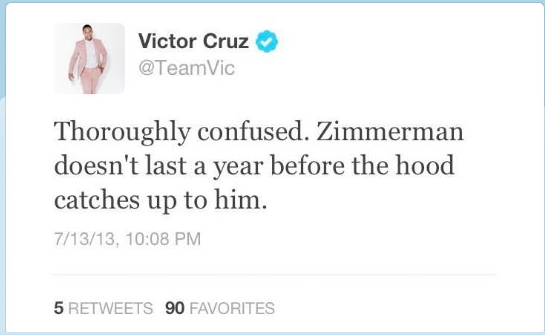Search
Facebook “tagging” adds a new wrinkle to social media discovery
More litigants are requesting that their adversaries produce social media evidence during litigation. Often this information is reasonably likely to lead to the discovery of admissible evidence at trial.
For example, a Facebook status update about a great day from a plaintiff suing her former employer for discrimination could bear on her claim for emotional distress. Therefore, she would have to produce this status update as part of discovery if requested to do so, because, not only is the information relevant, it is within the plaintiff’s “possession, custody, or control.”
Same holds trues for a plaintiff in a personal injury action claiming that she suffered a debilitating back injury. She may have to produce recent Facebook photos of her riding on a speedboat.
NJ victims of domestic violence, sexual assault can now get leave from work
Yesterday, the “New Jersey Security and Financial Empowerment Act,” also known as the “NJ SAFE Act” was passed. I had a long day yesterday. So, rather than summarize the NJ SAFE Act myself, I’m going to lean on Trish Graber of PolitickerNJ to do it for me here:
“NJ SAFE Act” would provide 20 days of unpaid leave time to an employee who is the victim of domestic violence or sexual assault or whose parent, child, spouse, or civil partner was the victim. The leave could be taken within one year of the incident, and used intermittently in intervals of no less than one day. Provided that the employee has not exhausted the allotted 20 days for the 12-month period, each violent incident would constitute a separate incident for which a victim is entitled to unpaid leave.
Only business that employ 25 or more employees need comply with NJ SAFE Act. Those employees who have worked for the same employer for at least one year and have logged 1,000 base hours during the immediately preceding 12-month period are eligible.
That’s what they said: Lotsa NLRB news, and an employment-law carnival
 So much labor-and-employment-law news this week, I’ll do what I can to cram it into a single post. Here goes…
So much labor-and-employment-law news this week, I’ll do what I can to cram it into a single post. Here goes…
From Seth Borden at Labor Relations Today comes this news about the Senate agreeing to — gasp — seat a full five-member National Labor Relations Board. How could this happen? Something about a nuclear option and compromising photos..
Staying with the labor theme, Joel Barras at Employment Law Watch reports here about a recent advice memorandum from the NLRB’s General Counsel in which the GC concludes that employers must bargain with their unions before implementing new social media policies. No shock there.
How 3 NFL players’ mea culpa will improve your social media policy
After the George Zimmerman not-guilty verdict was announced, two professional football players, NY Giants wide receiver Victor Cruz, and Atlanta Falcons wide receiver Roddy White, vented on Twitter:
Meanwhile, Pittsburgh Steelers offensive lineman, Maurkice Pouncey found himself in hot water after he was photographed last weekend, along with his brother Mike Pouncey, an offensive lineman forthe Miami Dolphins, wearing “Free Hernandez” caps. The “Hernandez” at issue being former New Engalnd Patriots tight end, Aaron Hernandez, who is current being held for trial on charges of first-degree murder
Recognizing that what they say and do online can win or lose tons of fans and $$$, plus impact their respective teams’ image, all three players quickly owned up to their online mistakes (Cruz, White, Pouncey)
GUEST POST: 3 ways to avoid Macy’s recent immigration workplace problems
Today we have a guest blogger at The Employer Handbook. It’s my colleague, Kristen Repyneck. Kristen is an associate at Dilworth Paxson LLP where she represents clients seeking non-immigrant and immigrant visas through family, employment, and investment, including investment in USCIS certified regional centers under the EB-5 Immigrant Investor Visa Program.
(Want to guest blog at The Employer Handbook? Email me).
* * *
Iowa S. Ct.: Upon review, firing the attractive female was not sex discrimination
So, by now, all of you must be familiar with the case in Iowa — I’ve blogged the heck out of it here and here — where the male dentist fired the attractive female hygienist, ostensibly because his wife was concerned that the hygienist’s continued employment might affect their marriage and because the dentist was concerned that he may eventually shag her.
Late last year, the Iowa Supreme Court unanimously held (here) that there is no sex discrimination if a male employer terminates a long-time female employee because the employer’s wife, due to no fault of the employee, is concerned about the nature of the relationship between the employer and the employee.
Then, a few weeks ago, and after a lot of public scrutiny, the high court agreed to reconsider its unanimous ruling, which it did with this new opinion issued on Friday.
The unintended consequences of a new social media workplace law
I got an email the other day from my SHRM buddy Tara Mauk Arthur. She lives in Arkansas, which is one of 12 states to have a social media workplace privacy law.
As my readers know, subject to limited exception, laws like the one in Arkansas make it illegal for an employer to require or request that a current or prospective employee disclose his/her username or password for a social media account. Some, like the one in Arkansas, also make it unlawful to add a co-worker as a social media contact.
Now, as you know, my posts on these new laws have a common theme; namely, that these laws present a solution in search of a problem. And the problem with slapping together and passing legislation like this is you get some unintended consequences. Cue Tara’s email:
One step closer to federally-protected LGBT rights in the workplace
 Normally, I get my Thursday post fodder from the Wiggity Wiggity Wonky Wednesday edition of Cracked Magazine. Hard hitting stuff like “7 Dick Moves Everyone Pulled in Classic Video Games” and “The Worst Imaginary Friends to Be Stuck With.”
Normally, I get my Thursday post fodder from the Wiggity Wiggity Wonky Wednesday edition of Cracked Magazine. Hard hitting stuff like “7 Dick Moves Everyone Pulled in Classic Video Games” and “The Worst Imaginary Friends to Be Stuck With.”
But, for today’s post, I read this newspaper called the Washington Post. I dunno. Must’ve sprung up overnight.
One its writers, Ruth Tam, writes here that the Employment Non-Discrimination Act (ENDA) has cleared a bipartisan Senate committee:
Obesity as a workplace disability? One court bucks the trend and says no.
In mid-June, the American Medical Association concluded that obesity is a disease “requiring a range of medical interventions to advance obesity treatment and prevention.” This news led Jon Hyman at the Ohio Employer’s Law Blog to conclude that classification of obesity as a “disease” has huge employment law implications; namely, that under the Americans with Disabilities Act, employers would have to consider allowing for reasonable accommodations for obese employees. Indeed, even before the AMA guidance, a Louisiana court determined that morbid obesity was a disability under the ADA, thus requiring reasonable accommodation.
Well, last month, a state court in West Virginia concluded otherwise. More on this decision and its impact on employers after the jump…
* * *
 The Employer Handbook Blog
The Employer Handbook Blog





